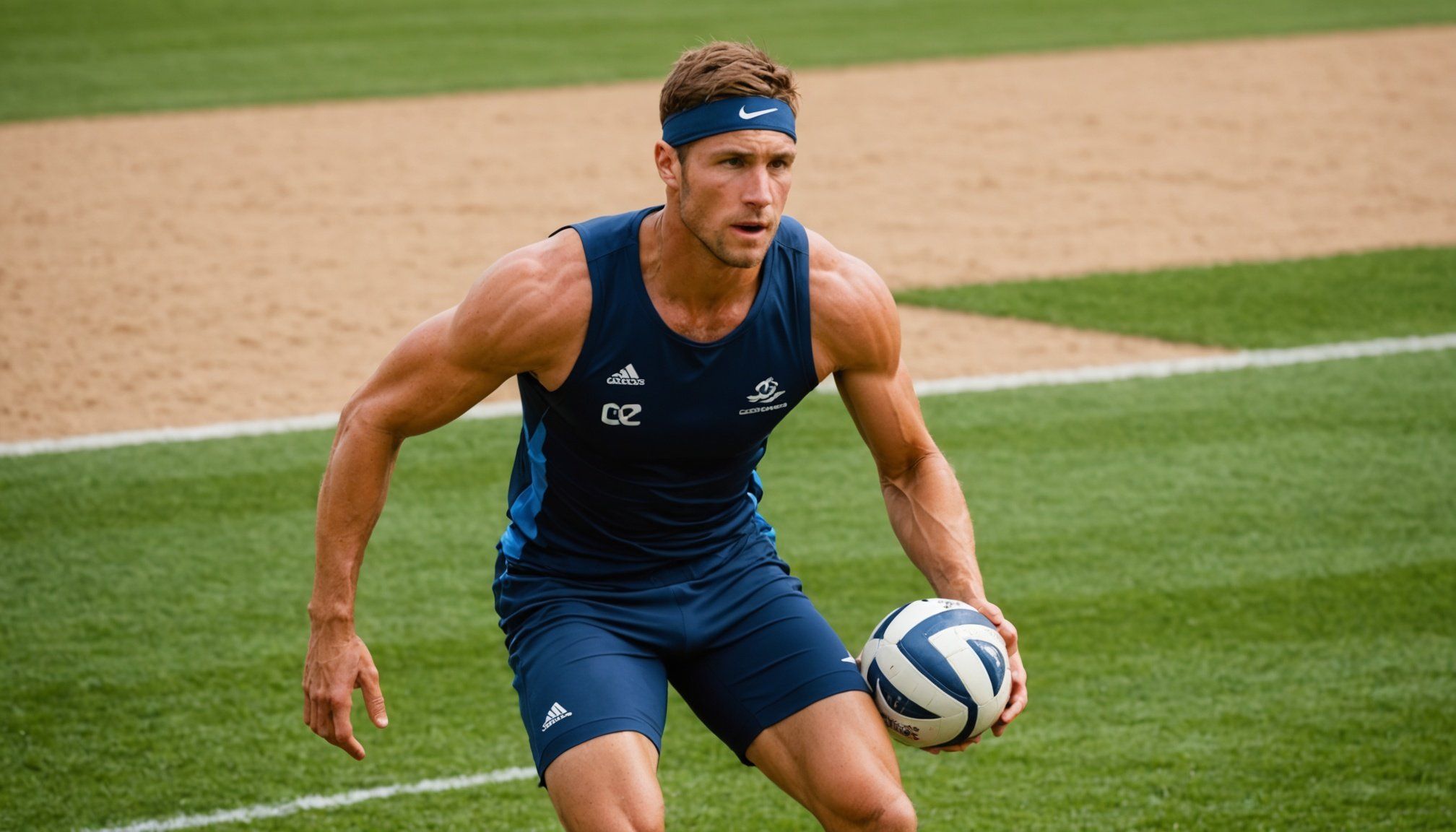Maximizing Athletic Performance: How Gluten-Free Diets Enhance Sports Recovery and Thriving
Understanding the Role of Nutrition in Athletic Performance
When it comes to maximizing athletic performance, nutrition plays a critical role. Athletes need a balanced diet that provides the necessary energy, supports muscle recovery, and maintains overall health. One aspect of nutrition that has gained significant attention in recent years is the impact of gluten on athletic performance. Here, we will delve into how a gluten-free diet can enhance sports recovery and overall athletic performance.
What is Gluten and Its Impact on Health?
Gluten is a protein found in wheat, barley, and rye. For individuals with certain health conditions such as celiac disease, non-celiac gluten sensitivity (NCGS), and wheat allergy, consuming gluten can lead to severe health issues. Celiac disease, for example, causes the immune system to react to gluten, damaging the small intestine and affecting nutrient absorption[2].
In the same genre : Revitalize Your Health: The Life-Changing Benefits of Weekly Tai Chi for Middle-Aged Wellness
For athletes, even if they do not have these conditions, gluten can still impact their performance. Some athletes report improved energy levels, reduced inflammation, and enhanced recovery when following a gluten-free diet.
Benefits of a Gluten-Free Diet for Athletes
Enhanced Energy Levels
Athletes require sustained energy levels to perform at their best. Whole foods that are naturally gluten-free, such as fruits, vegetables, lean meats, and whole grains like quinoa and rice, provide a steady release of energy. Unlike processed foods that contain gluten, these whole foods do not cause blood sugar spikes and crashes, ensuring that athletes maintain optimal energy levels throughout the day[1].
Also to discover : Unlock Vitality: The Ultimate Senior’s Guide to Reaping Health Benefits from Water Aerobics
Reduced Inflammation and Improved Recovery
Gluten can cause inflammation in some individuals, even if they do not have a diagnosed gluten-related disorder. Reducing or eliminating gluten from the diet can help minimize this inflammation, which is particularly beneficial for athletes who engage in high-intensity training. Foods rich in antioxidants, such as berries and leafy greens, which are often part of a gluten-free diet, help reduce oxidative stress and support muscle recovery[1].
Better Digestion
Athletes often experience digestive issues due to intense physical activity. A gluten-free diet can promote better digestion by avoiding foods that may cause gastrointestinal discomfort. This is especially important for endurance athletes who need to maintain peak performance over extended periods.
Key Components of a Gluten-Free Diet for Athletes
Core Nutrients
A well-balanced gluten-free diet for athletes should include the following core nutrients:
- Carbohydrates: Whole grains like quinoa, brown rice, and fruits provide the necessary carbohydrates for energy production.
- Proteins: Lean proteins from sources like chicken, fish, and plant-based options such as beans and nuts support muscle repair and growth.
- Healthy Fats: Foods like avocados, nuts, and seeds provide essential fatty acids that support energy production and overall health.
- Micronutrients: Vitamins and minerals like vitamin D, calcium, magnesium, and potassium are crucial for maintaining bone health, muscle function, and proper hydration.
- Antioxidants: Foods rich in antioxidants help protect the body from oxidative stress and support overall health and vitality[1].
Plant-Based Diets
Plant-based diets are increasingly popular among athletes due to their nutritional benefits and potential to enhance performance. Here are some key plant-based foods that are naturally gluten-free:
- Fruits and Vegetables: Rich in vitamins, minerals, and antioxidants.
- Legumes: High in protein, fiber, and essential micronutrients.
- Nuts and Seeds: Provide healthy fats, protein, and fiber.
- Whole Grains: Quinoa, rice, and corn are excellent sources of carbohydrates and fiber.
### Example of a Daily Gluten-Free Meal Plan for Athletes
**Breakfast**
- Oatmeal made with gluten-free oats, topped with fruits and nuts
- Smoothie with almond milk, banana, spinach, and protein powder
**Lunch**
- Grilled chicken or fish with quinoa and mixed vegetables
- Salad with lean protein, avocado, and a citrus vinaigrette dressing
**Dinner**
- Grilled lean meat or plant-based protein with sweet potatoes and steamed vegetables
- Stir-fry with rice, mixed vegetables, and lean protein
**Snacks**
- Fresh fruits and nuts
- Energy bars made from gluten-free ingredients
- Smoothies with plant-based milk and protein powder
Supplements and Gluten-Free Diets
For athletes, supplements can be an additional support to their diet, especially when it comes to recovery and muscle growth.
- Protein Supplements: Whey protein or plant-based protein powders can be used post-workout to aid in muscle recovery.
- Creatine: Helps in boosting muscle strength and endurance.
- Omega-3: Provides essential fatty acids that support overall health and reduce inflammation[1].
Common Challenges and Solutions
Nutritional Deficiencies
One of the common challenges of a gluten-free diet is the potential for nutritional deficiencies. Gluten-free products often lack essential nutrients like iron, B vitamins, and fiber compared to their gluten-containing counterparts.
Solution:
- Ensure a balanced diet that includes a variety of whole foods.
- Choose gluten-free products that are fortified with essential nutrients.
- Consult with a nutritionist to tailor a diet plan that meets all nutritional needs.
Higher Cost
Gluten-free products can be more expensive than their traditional counterparts.
Solution:
- Focus on whole foods that are naturally gluten-free, which are often more cost-effective.
- Plan meals in advance and prepare them at home to reduce reliance on expensive gluten-free products.
Real-Life Examples and Testimonials
Many athletes have reported significant improvements in their performance after adopting a gluten-free diet. Here are a few examples:
- Professional Athletes: Some professional athletes have credited their improved performance to a gluten-free diet. For instance, tennis star Novak Djokovic has spoken about how a gluten-free diet helped him overcome health issues and improve his athletic performance.
- Endurance Athletes: Endurance athletes often report better energy levels and reduced recovery times after switching to a gluten-free diet. This is because gluten-free diets tend to be rich in complex carbohydrates and lean proteins, which are essential for sustained energy and muscle recovery.
A gluten-free diet can be a powerful tool for athletes looking to enhance their performance, improve recovery, and maintain overall health. By focusing on whole, nutrient-dense foods and avoiding processed foods that contain gluten, athletes can optimize their energy levels, reduce inflammation, and support muscle recovery.
Key Takeaways
- Balanced Diet: Ensure a balanced intake of carbohydrates, proteins, healthy fats, and essential micronutrients.
- Whole Foods: Focus on whole foods that are naturally gluten-free to avoid nutritional deficiencies.
- Supplements: Use supplements judiciously to support recovery and muscle growth.
- Consultation: Consult with a nutritionist to tailor a diet plan that meets individual nutritional needs.
By adopting a well-structured gluten-free diet, athletes can set themselves up for success, both in terms of short-term performance gains and long-term health benefits.
Frequently Asked Questions
Q1: What is the impact of gluten on athletic performance?
Gluten can affect athletic performance by causing inflammation, digestive issues, and energy crashes in some individuals. A gluten-free diet can help mitigate these effects.
Q2: How do I ensure I get all the necessary nutrients on a gluten-free diet?
Focus on whole foods, choose fortified gluten-free products, and consult with a nutritionist to ensure you are meeting all your nutritional needs.
Q3: Are gluten-free diets beneficial for all athletes?
While a gluten-free diet can be beneficial for athletes with gluten-related disorders, it may not be necessary for all athletes. However, many athletes report improved performance and recovery on a gluten-free diet.
Q4: How can I make a gluten-free diet more affordable?
Focus on whole foods, plan meals in advance, and prepare them at home to reduce reliance on expensive gluten-free products.
By understanding the benefits and challenges of a gluten-free diet, athletes can make informed choices that support their athletic goals and overall health.











